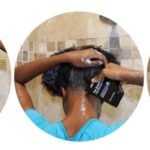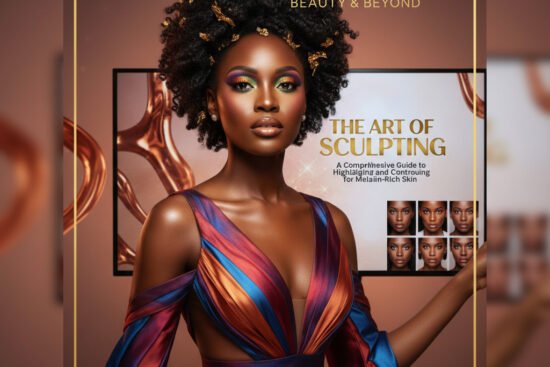
So you’ve been wondering how to keep your African American scalp moisturized? Well, you’re in the right place! In this article, we’ll explore the best ways to maintain a well-hydrated scalp specifically tailored for individuals with African American hair. We’ll also tackle the age-old question of whether washing your hair every day is necessary or not. Get ready to say goodbye to dryness and hello to a healthy, lustrous scalp!
Understanding the Unique Needs of African American Hair
The natural curl pattern
African American hair is known for its unique curl pattern, which sets it apart from other hair types. The natural coils and curls can vary from loose waves to tightly coiled spirals. This curl pattern requires specific care and attention to maintain its health and vitality.
Dryness and brittle texture
One of the most common challenges faced by individuals with African American hair is dryness. The hair shaft is prone to losing moisture, leading to a brittle and fragile texture. This dryness can result in breakage and lack of elasticity, making it crucial to prioritize moisture retention in the hair care routine.
Potential for breakage
Due to the dry and brittle nature of African American hair, it is more susceptible to breakage. Breakage can occur when the hair is combed or brushed, styled, or exposed to harsh environmental factors. Understanding how to properly moisturize and care for African American hair can help minimize breakage and promote healthy growth.
Importance of Moisturizing the Scalp
Promotes healthy hair growth
Moisturizing the scalp is essential for promoting healthy hair growth. Proper hydration helps nourish the hair follicles and stimulates blood circulation, which in turn encourages the growth of strong and vibrant hair. By keeping the scalp hydrated, you are providing a fertile environment for your hair to flourish.
Reduces dandruff and scalp irritation
Dryness can often lead to scalp issues such as dandruff and irritation. Moisturizing the scalp helps combat these problems by soothing any discomfort and reducing the appearance of flakes. By maintaining a well-moisturized scalp, you can enjoy a healthier and more comfortable hair care experience.
Prevents breakage and split ends
Moisturizing the scalp plays a crucial role in preventing breakage and split ends. When the hair shaft is adequately hydrated from the roots, it becomes more flexible and less prone to damage. By incorporating regular moisture into your hair care routine, you can minimize breakage and ensure that your strands remain strong and resilient.
Debunking the Myth: Washing Hair Everyday
Stripping natural oils
Contrary to popular belief, washing your African American hair every day can do more harm than good. Frequent washing can strip away the natural oils that your scalp produces, which are essential for maintaining moisture and protecting your hair. It is important to strike a balance between cleanliness and preserving your natural oils.
Promotes dryness
Washing your hair every day can disrupt the moisture balance of your scalp, resulting in dryness. Dry scalp can lead to itchiness, flakiness, and an overall uncomfortable sensation. By reducing the frequency of washes, you can prevent excessive dryness and retain essential moisture in your hair.
Understanding when to wash
Instead of washing your hair daily, it is advisable to establish a washing routine based on your hair’s specific needs. Factors such as your scalp’s oil production, lifestyle, and the products you use will determine how often you should wash your hair. It’s important to listen to your hair and adjust your washing schedule accordingly.
Choosing the Right Moisturizers
Natural oils (coconut, olive, tea tree, etc.)
Natural oils are excellent moisturizers for African American hair. Oils such as coconut, olive, and tea tree oil are lightweight and easily absorbed by the hair shaft, providing much-needed hydration. These oils also have additional benefits such as antimicrobial properties and promoting hair growth.
Store-bought moisturizers made for African American hair
There are numerous store-bought moisturizers specifically formulated for African American hair. These products are designed to address the unique needs of curly and textured hair, providing deep hydration and sealing in moisture. Look for moisturizers that contain ingredients like shea butter, aloe vera, and jojoba oil for maximum nourishment.
Avoiding ingredients that can dry out the hair
When choosing moisturizers for African American hair, it’s important to avoid ingredients that can exacerbate dryness. Steer clear of products that contain alcohol, sulfates, and other harsh chemicals known to strip away moisture. Opt for moisturizers that prioritize hydration and are free from these drying ingredients.
The Proper Technique to Moisturize the Scalp
Sectioning the hair
Before moisturizing your scalp, it’s beneficial to divide your hair into sections. This allows for easier application of the moisturizer, ensuring that each section receives adequate hydration. Using hair clips or bands, section your hair into manageable portions.
Applying the moisturizer
Once your hair is sectioned, take a small amount of moisturizer and rub it between your palms. Gently massage the moisturizer into your scalp, focusing on the roots and areas that tend to be dry. Be sure to work the moisturizer through the entire length of the hair shaft for maximum hydration.
Massaging the scalp
As you apply the moisturizer, take the time to massage your scalp. This promotes blood circulation and stimulates the hair follicles, encouraging healthy hair growth. Use your fingertips to apply gentle pressure in circular motions, ensuring that the moisturizer is absorbed into the scalp.
Frequency of Moisturizing
Daily moisturizing
For individuals with extremely dry hair or scalp, daily moisturizing may be necessary. This ensures that the hair and scalp remain adequately hydrated throughout the day. If you choose to moisturize daily, opt for lightweight moisturizers that won’t weigh down your hair.
Adjusting based on hair type and condition
The frequency of moisturizing may vary depending on your hair type and condition. Those with oilier hair may only need to moisturize every few days, while those with drier hair should aim for more frequent moisture. Pay attention to how your hair feels and adjust your moisturizing routine accordingly.
Factors affecting moisturizing frequency
Various factors can affect how often you need to moisturize your hair. Environmental conditions, such as excessive heat or cold, can increase the need for hydration. Additionally, certain hairstyles, such as braids or weaves, may require more frequent moisturizing to keep the hair underneath healthy and moisturized.
Moisturizing Based on Various Hairstyles
Moisturizing natural hair
For those with natural hair, moisturizing is essential to maintain its health and vitality. Prioritize using a water-based moisturizer followed by a sealant, such as an oil or butter, to lock in moisture. Focus on moisturizing the ends of your hair, as they are often the driest and most prone to breakage.
Moisturizing braids/locks
Braids and locks require special care to prevent dryness and breakage. Use a lightweight moisturizer and apply it to your scalp using a small spray bottle. Gently massage the moisturizer into your scalp, ensuring that it reaches the roots of your braids or locks. Protecting your braids or locks with a silk or satin scarf at night will help retain moisture.
Moisturizing hair under wigs or weave
When wearing wigs or a weave, it’s important not to neglect the hair underneath. Use a lightweight, oil-free moisturizer to hydrate your scalp and hair. Apply the moisturizer by parting your hair and reaching the scalp. You can also lightly mist your hair with water and then apply the moisturizer to seal in the hydration.
Importance of Brushing
Spreading the natural oils
Brushing your African American hair is crucial for distributing the natural oils produced by your scalp. These oils help moisturize and nourish your hair, promoting its overall health. When you brush your hair, the oils are evenly distributed from the roots to the tips, preventing dryness and ensuring that your strands remain hydrated.
Avoiding breakage while brushing
To avoid breakage while brushing, it’s important to use the right technique and tools. Start by using a wide-toothed comb or a brush specifically designed for curly hair. Begin at the ends of your hair and work your way up to the roots, gently detangling any knots or tangles. Taking your time and being gentle will help minimize breakage.
Choosing the right brush
When selecting a brush for your African American hair, opt for one with natural bristles or wide-spaced plastic bristles. These types of brushes are gentle on your hair, reducing the risk of breakage and damage. Avoid brushes with fine, close-set bristles, as they can cause unnecessary tension and stress on your hair strands.
Additional Care: Deep Conditioning
What is deep conditioning?
Deep conditioning is a hair care treatment aimed at providing intense hydration and nourishment to your hair. It involves using a rich conditioning product or treatment mask that penetrates deep into the hair shaft, repairing damage and restoring moisture. Deep conditioning is particularly beneficial for African American hair, as it helps combat dryness and promotes overall hair health.
Benefits for African American hair
Deep conditioning offers numerous benefits for African American hair. It helps to restore moisture, improving the hair’s elasticity and reducing breakage. Deep conditioning also softens and detangles the hair, making it more manageable and less prone to damage. Additionally, it can enhance the natural curl pattern, adding definition and bounce to your locks.
Choosing the right deep conditioner
When choosing a deep conditioner for your African American hair, opt for products that are specifically formulated for textured or curly hair. Look for ingredients such as shea butter, argan oil, and glycerin, as they provide intense hydration and nourishment. Consider using a deep conditioner at least once a week to maintain optimal moisture levels.
Helpful Tips for Maintaining Moisture
Covering hair at night
Covering your hair at night can help retain moisture and reduce dryness. Use a satin or silk bonnet, scarf, or pillowcase to prevent friction and moisture loss while you sleep. These materials are gentle on your hair and reduce the chances of waking up with dry, brittle strands.
Minimizing the use of heat
Excessive heat can strip away moisture from your hair, leaving it dry and prone to breakage. Minimize the use of heated styling tools such as flat irons, curling irons, and blow dryers. When heat is necessary, use a heat protectant spray and adjust the temperature to the lowest effective level to protect your hair from heat damage.
Eating a balanced diet for healthy hair
Maintaining a balanced diet is essential for healthy hair, including African American hair. Ensure that your diet includes foods rich in vitamins, minerals, and essential fatty acids. Incorporate fruits, vegetables, lean proteins, and whole grains to provide your body with the nutrients it needs to support healthy hair growth and maintain moisture levels.
In conclusion, understanding the unique needs of African American hair is crucial for maintaining its health and vitality. By prioritizing moisture and utilizing the right techniques and products, you can promote healthy hair growth, prevent breakage, and achieve the luscious locks you desire. Remember to moisturize your scalp regularly, choose appropriate moisturizers, and follow a consistent hair care routine. With proper care and attention, you can embrace your natural curls and enjoy beautiful, nourished African American hair.











